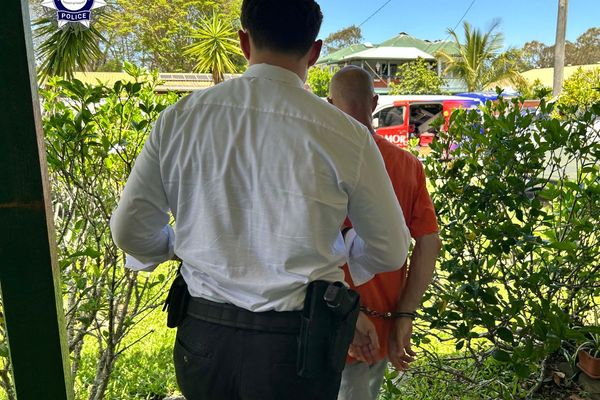LABOUR will enact a “fundamental reorganisation” of the Scottish Government and its public bodies should the party win power in 2026, Anas Sarwar has said.
Speaking to a crowd of party faithful on Monday in a speech aimed at the Holyrood election in around 16 months, the Scottish Labour leader criticised the number of “quangos” – quasi-autonomous non-governmental organisations that operate independently from direct government control but perform public functions – in Scotland.
It came despite UK Labour having faced criticism for setting up one new quango every week since taking power at Westminster.
Asked if his attacks on the number of quangos meant he also believed reform was needed at a UK Government level, Sarwar told the press that was “for the UK Government to decide”.
He went on: “I'm seeking to be the Scottish government. I'm seeking to be first minister.
“It's for the UK Government, a UK Prime Minister, to look at the public bodies that exist across the UK.
“What I'm really clear about though is we want to change the approach in Scotland. The fact that we have 131 quangos, more quangos than MSPs, demonstrates a serious issue here in Scotland.
“If we are spending hundreds of millions, in actual fact, billions of pounds every single year on these organisations, whilst the outcomes for Scots continue to get worse, that again is a badge of failure.
“Now, we want to make sure it's the right skills, the right resources, the right people in the right places, and that's why we will do a fundamental reorganisation of the Scottish Government. We will do a fundamental reorganisation of those public sector bodies.”
Sarwar said that some £6.6 billion was “being spent on these bodies every year, and millions is being spent on board members”.
He argued that by cutting the number of managers, executives, and boards, more funding could be channelled to frontline services and the Government could also be made more accountable.
Asked which bodies Labour would specifically look to cut down in size, Sarwar mentioned the number of NHS health boards – an idea which has previously been floated by his party.
He also pointed to “the economic directorate”, suggesting there are too many quangos “involved in shaping and supporting our economy and businesses” leading to increased red tape and sluggish decision-making.
A Freedom of Information release from the Scottish Government in May 2024 confirmed that there were 131 quangos, up from 119 in 2015.
According to a Scotsman report from 2010, there were 186 quangos in Scotland at the onset of devolution.

A parliament briefing from 2010 noted: “The number has been falling: there were 790 in 2008 and 827 in 2007. The number of NDPBs has fallen by over 10% since 1997.”
In 2023, then-Cabinet Office minister Jeremy Quin said there were 308 “arms-length bodies (ALBs), sometimes referred to as 'quangos'. These include non-ministerial departments, executive agencies, and non-departmental public bodies.”
Quin said this was due to “successive government efforts resulting in the closures of bodies, mergers of two or more bodies together, and classification changes that removed bodies from having ALB status (whilst still remaining operational)”.







